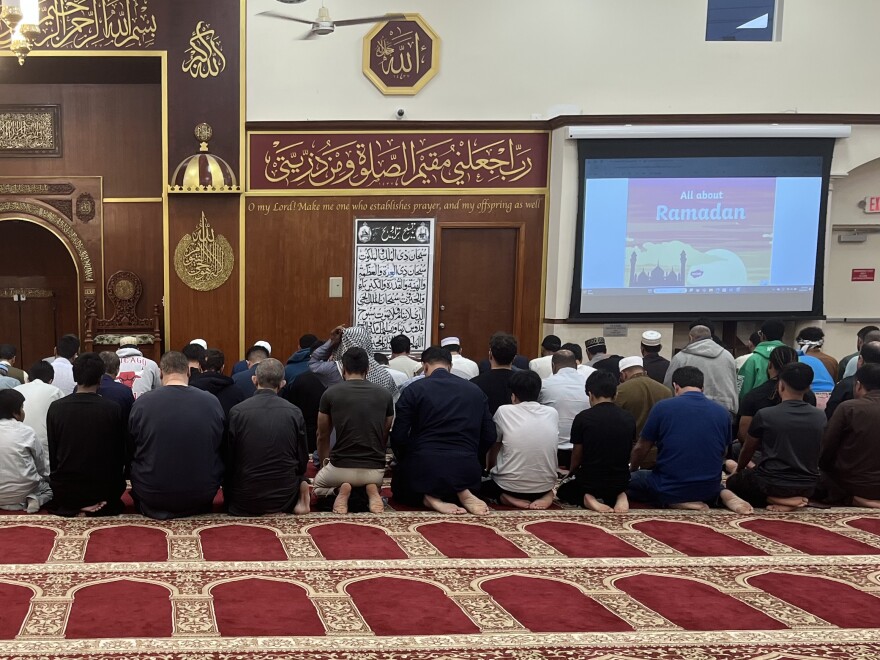For Muslims, Ramadan — the ninth month of the Islamic calendar — is the holiest time of the year. Besides taking part in fasting, reflection and charity, some view the month as an opportunity to build bridges between faith groups.
Since the start of the observance at the beginning of March, every evening at exactly 7:29 p.m. Muslims gather at community mosques to break fast — after not eating or drinking anything since before 7 a.m. — with the sweetness of a date.
This is followed by the traditional Maghrib, or sunset prayer, and lavish iftar dinners for nourishment. And sometimes they are joined by non-Muslims, too.
READ MORE: Muslim call to prayer can take on an added significance during Ramadan
In Miami Gardens, at the Islamic Center of Greater Miami, members of different faiths recently attended the mosque’s open house iftar. They shared plates of Mediterranean food: rice, kebab, hummus and bread.
“You cannot love your neighbor if you don't know who your neighbor is,” said Rebecca Barroso, who is Christian and normally attends a Baptist church in Kendall. “Being able to talk to each other, know what they believe in, for them to know what we believe in and that we can actually be together in the same place is awesome.”

Barroso, who had been to this event once before, said she appreciated the moments in which her faith overlaps with others'. For instance, she referred to how the Bible also talks about fasting as a spiritual practice.
Dima Samra, the daughter of the mosque’s Imam, Dr. Abdul Hamid Samra, recalls open house iftar dinners weren’t a thing prior Sept. 11, 2001, when the terrorist attack brought increased attention — as well as negative stereotypes — to the community.
“My dad was a part of these conversations and we used to go and meet with Christian families and Jewish families and eat together,” she said. “Seeing this type of event happen regularly, every single Ramadan… it's beautiful and it makes us feel like we're part of the community as well... Before, it was like we were outsiders.”
Last year, some mosques under the Coalition of South Florida Muslim Organizations or COSMOS, suspended open house iftars, citing security concerns since the current phase of the Israel-Hamas conflict that began in October of 2023.
Security and law enforcement have also been present outside many mosques. While there are still incidents of Islamophobia in the region, the situation has improved from last year, Tehsin Siddiqui, COSMOS president, said.
During last year's Ramadan, Jewish community leaders who would normally attend community events hosted by COSMOS didn't attend. It was another symptom of division among faith groups in South Florida.

A year later, Siddiqui said, things have changed for the better.
“That ice has unfrozen, basically,” she said. “ There is more dialogue now... Are we able to go back to [before October 2023], since the war started? Are we there? I wouldn't say so. I think there is work to be done. Cosmos has been always at the forefront in doing that work.”
This Ramadan, she said, there is one thing at the forefront of her prayers and those of millions of Muslims around the world: civility and peace.
Ramadan ends this Saturday evening with Eid Al-Fitr — a grand Islamic celebration to break the fast.






